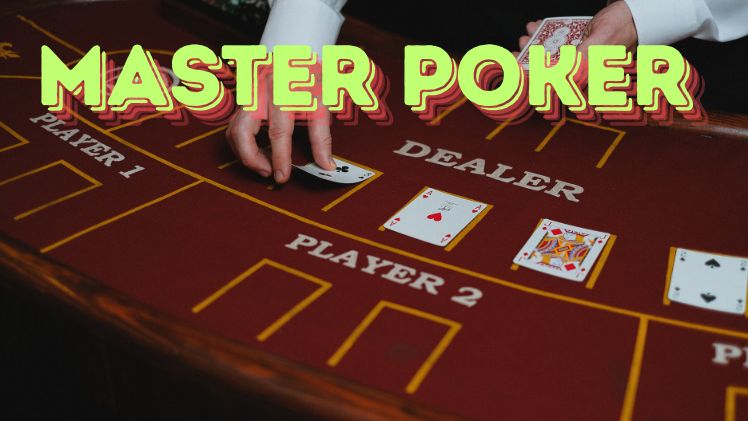The Psychology Behind Every Master Poker Player’s Success
Poker is often described as a game of skill, luck, and mathematics — but at its core, it’s a game of psychology. What separates master poker players from the rest isn’t just technical knowledge or strategy, but their ability to understand, control, and manipulate the psychological dynamics of the game. Every decision at the table involves reading people, managing emotions, and staying mentally sharp under pressure. This article explores the psychological principles that drive every master poker player’s success and how you can apply them to elevate your own game.
Emotional Control and Composure
One of the strongest psychological traits of a masterpoker player is emotional control. The ability to remain calm after a bad beat or a big loss is what keeps great players consistent. Average players often fall into “tilt” — a state of emotional frustration that leads to reckless decisions. Master players, however, understand that emotions cloud judgment. They train themselves to stay composed, detach from outcomes, and focus solely on decision quality. Emotional balance is not just an advantage — it’s a necessity for long-term success.
Understanding Human Behavior
Poker is as much about people as it is about cards. Master poker players are excellent students of human behavior. They observe subtle cues such as body language, facial expressions, timing, and betting patterns to predict their opponents’ actions. This skill, known as “reading,” is rooted in psychology. The more you understand how people think, react, and behave under stress, the better you can anticipate their moves. By combining observation with intuition, poker masters turn psychology into a powerful strategic weapon.
Patience and Discipline Under Pressure
Patience is one of the most underrated psychological strengths in poker. Master players don’t rush to play every hand or chase every pot. They wait for the right opportunities and play selectively. This discipline allows them to conserve chips and maximize profits when the odds are in their favor. They also understand that poker is a long game — success comes from consistent decision-making over time, not from quick wins. Psychological patience keeps them grounded, focused, and less vulnerable to mistakes caused by impulse.
Confidence Without Overconfidence
Confidence is essential for poker success, but overconfidence can be dangerous. Master poker players strike the perfect balance. They trust their instincts and knowledge but remain aware of their limitations. Confidence gives them the courage to make bold plays, while humility keeps them from underestimating opponents. Overconfidence leads to careless mistakes and risky bluffs, whereas true confidence is built on preparation and experience. This psychological balance allows them to perform consistently, even against skilled opponents.
The Power of Focus and Concentration
Poker is mentally demanding, requiring sustained focus for hours. Master poker players train their minds to maintain concentration throughout long sessions. They avoid distractions, manage fatigue, and keep their attention sharp on every detail — from betting patterns to emotional shifts in opponents. Losing focus for even one hand can be costly. By cultivating deep concentration, masters maintain their strategic edge and make better decisions under pressure.
The Art of Bluffing and Deception
Bluffing isn’t just about tricking opponents — it’s about understanding their psychology. A successful bluff works because it tells a believable story. Master poker players use their knowledge of human behavior to make opponents doubt their own reads. They bluff when conditions are right — when their opponents show weakness or https://masterpoker8.com/ when the board supports their narrative. The psychology behind bluffing involves confidence, timing, and an understanding of fear and uncertainty. Great players manipulate these emotions to control the table without relying on strong hands.
Adapting to Opponent Personalities
Every poker table is a mix of personalities — aggressive players, cautious ones, emotional players, and analytical thinkers. A master poker player adjusts their strategy based on these psychological profiles. Against emotional players, they stay calm and let frustration lead to mistakes. Against passive players, they apply pressure and dominate the tempo. Understanding different mindsets helps masters create customized strategies that exploit each opponent’s weaknesses. Flexibility and psychological awareness make them nearly impossible to counter.
Resilience and Mental Toughness
Even the best players face losing streaks and moments of doubt. What sets masters apart is their mental toughness. They view losses as learning experiences rather than failures. This resilience allows them to bounce back quickly, analyze mistakes, and improve. Poker mastery demands thick skin and unwavering focus, even in adversity. By staying mentally strong, they turn setbacks into stepping stones toward long-term success.
Self-Awareness and Continuous Improvement
True mastery begins with self-awareness. Poker professionals constantly evaluate their own performance — not just their strategies but also their mindset. They identify emotional triggers, correct behavioral flaws, and adapt to evolving game conditions. This level of introspection allows continuous growth. Understanding your own psychology helps you recognize when you’re off balance and take corrective action before it affects your game.
Thinking Probabilistically
A master poker player doesn’t think in terms of certainty but probability. Every decision is guided by expected value (EV) and logical reasoning. They understand that losing a hand doesn’t necessarily mean they played it wrong. This probabilistic mindset keeps them rational and detached from outcomes. By focusing on making correct decisions rather than chasing wins, they maintain a clear, strategic mental state — one that’s vital for consistent success.
Conclusion
The psychology behind every master poker player’s success lies in discipline, focus, emotional intelligence, and adaptability. Great players don’t rely on luck — they rely on mindset. They read people better, control emotions under pressure, and maintain confidence through logic, not ego. Developing psychological strength takes time, but once mastered, it transforms not only your poker skills but your overall approach to the game. If you learn to think, feel, and react like a poker master, you’ll gain the ultimate edge — the power of a winning mind.







